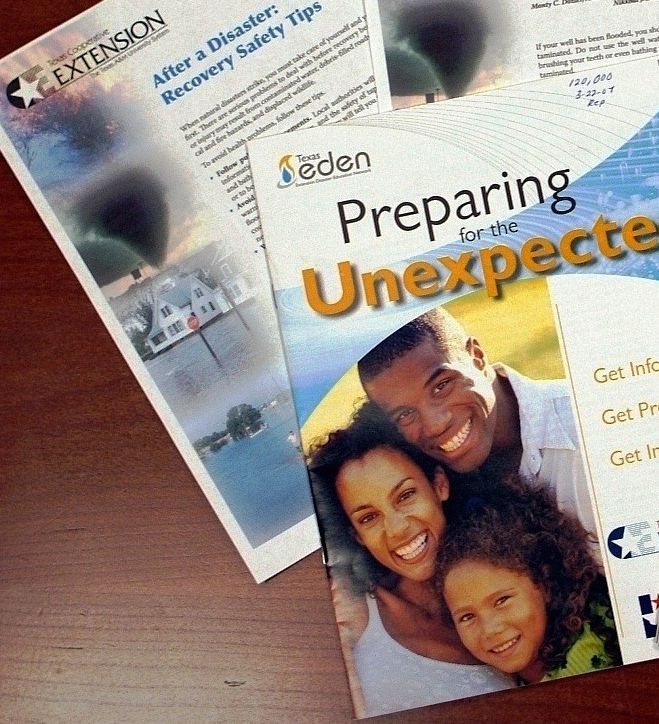Tax-free holiday for emergency preparedness supplies
Texans can take emergency planning ‘to the bank’ on Emergency Preparation Supplies Sales Tax Holiday

While many people in Texas are aware there’s a summer sales tax holiday for back-to-school purchases, fewer are aware there is also a sales tax holiday for emergency preparedness supplies, said a Texas A&M AgriLife Extension Service expert.
“The state comptroller’s office allows Texans to purchase certain emergency preparation supplies tax-free during the Emergency Preparation Supplies Sales Tax Holiday,” said Joyce Cavanagh, Ph.D., AgriLife Extension specialist with disaster assessment and recovery, College Station.
Cavanagh said this year’s tax holiday begins at 12:01 a.m. April 25 and ends at midnight April 27.
“We’re hoping with the recent COVID-19 situation people will be more aware of the importance of emergency preparation and take this opportunity to save on items they need to be adequately prepared for another possible disaster, especially with hurricane season beginning on June 1,” she said.
Cavanagh said there is no limit on the number of qualifying items that can be purchased and no need to show a tax-exempt certificate.
“There are, however, some restrictions how much you are allowed to spend on specific items and there may be additional charges that may affect their overall purchase price,” she said.
On the list
According to the Texas comptroller’s website, emergency preparation supplies that qualify for tax exemption if purchased for less than a specific price include:
— Portable generators, if purchased for less than $3,000.
— Hurricane shutters and emergency ladders, if purchased for less than $300.
Other emergency preparation supplies that are tax-exempt if purchased for less than $75 each include:
- Batteries — single or multipack of various sizes.
- First-aid kits.
- Fuel containers.
- Ground anchor systems and tie-down kits.
- Hatchets and axes.
- Mobile telephone batteries and chargers.
- Non-electric coolers and ice chests.
- Non-electric can openers.
- Portable self-powered light sources.
- Portable self-powered radios.
- Reusable and artificial ice products.
- Smoke detectors.
- Fire extinguishers and carbon monoxide detectors.
- Tarps and plastic sheeting.
Cavanagh noted that items such as antibacterial hand sanitizer, soap, spray and wipes are always exempt from sales tax if they are labeled with a “Drug Facts” panel in accordance with Food and Drug Administration regulations.
Not on the list
She said some of the items that do not qualify for exemption include medical masks and face masks, cleaning supplies, gloves, toilet paper, camping supplies, chainsaws, plywood and extension ladders. Also not eligible for the tax-free holiday are tents, the cost of repair or replacement parts for emergency preparation supplies, and the cost of services performed on or related to emergency preparation supplies.
“There may also be additional charges included in the purchase price of qualifying items that will affect the final cost of the item or items and make them taxable by putting them over the maximum allowed tax-free amount,” Cavanagh said. “Additional costs such as shipping and handling or transportation are considered part of the sales price.”
She also noted per tax-free holiday guidelines, if an emergency preparation supply item is taxable then so is the delivery charge for that item.
“It’s important to know and take into account all charges when deciding whether or not an item will be truly tax-free,” Cavanagh said
The Texas Extension Disaster Education Network website has a variety of information on disaster preparedness and recovery.


